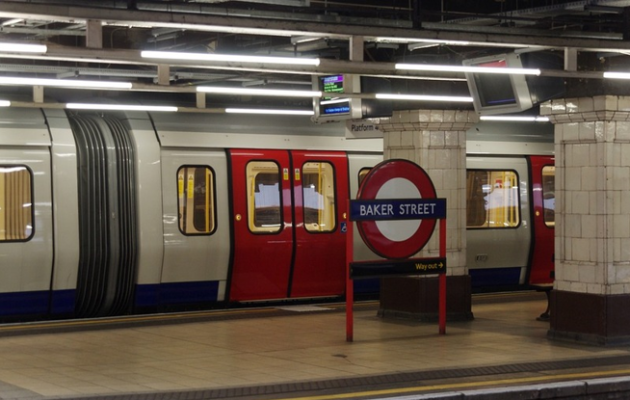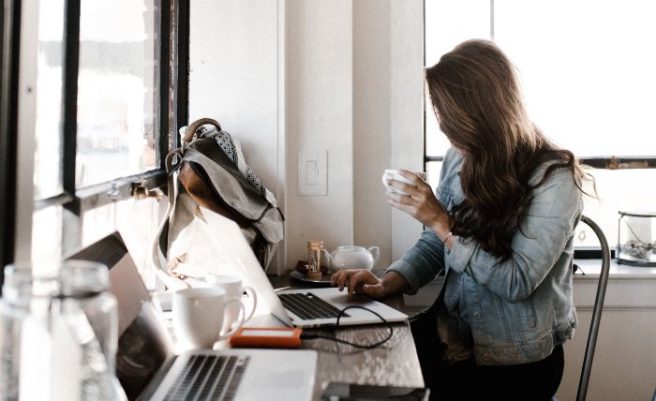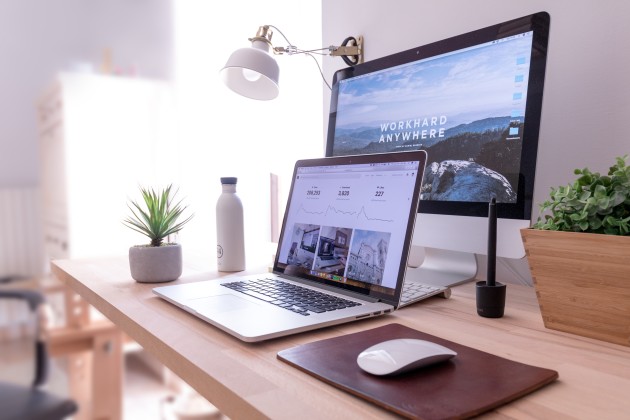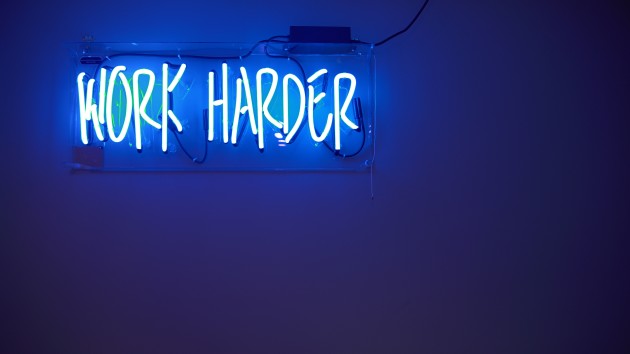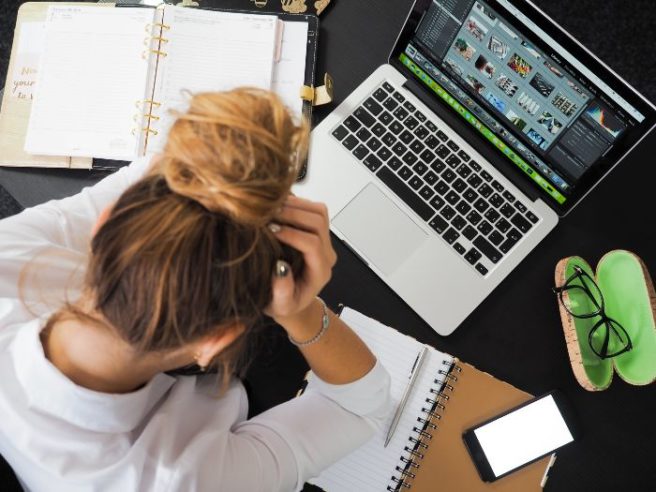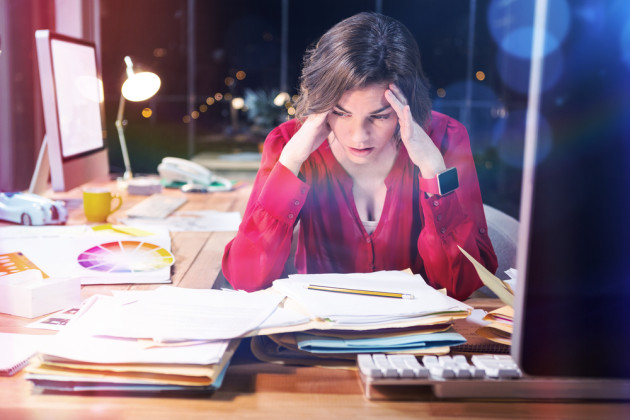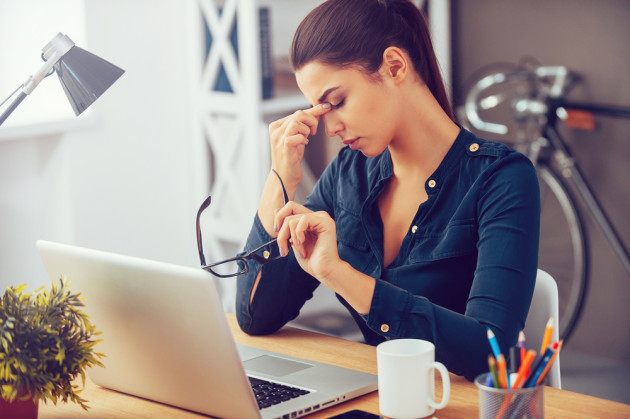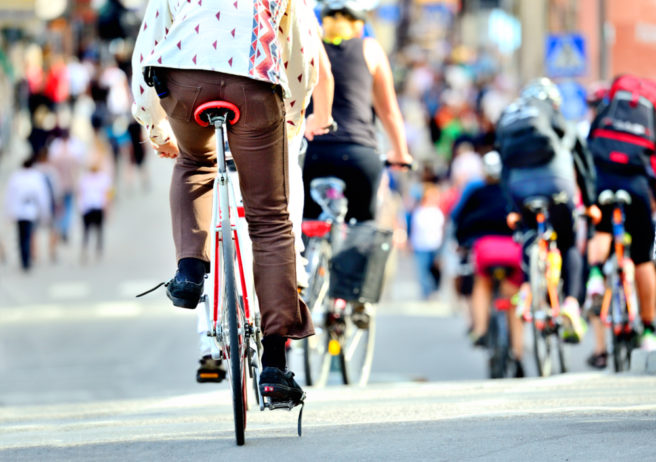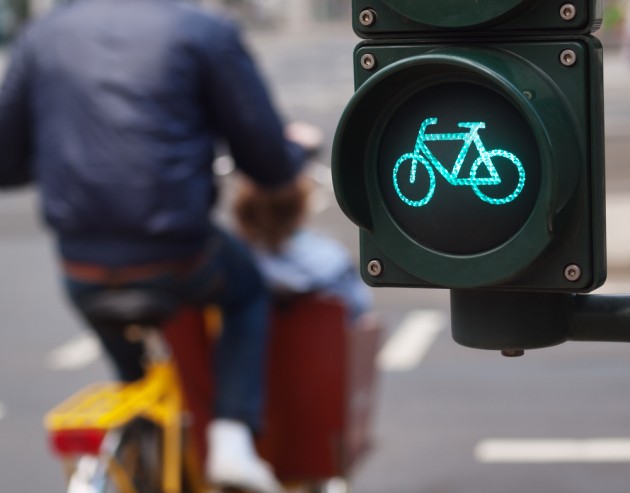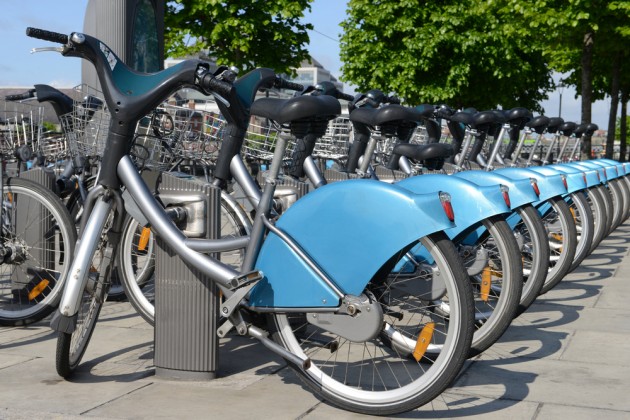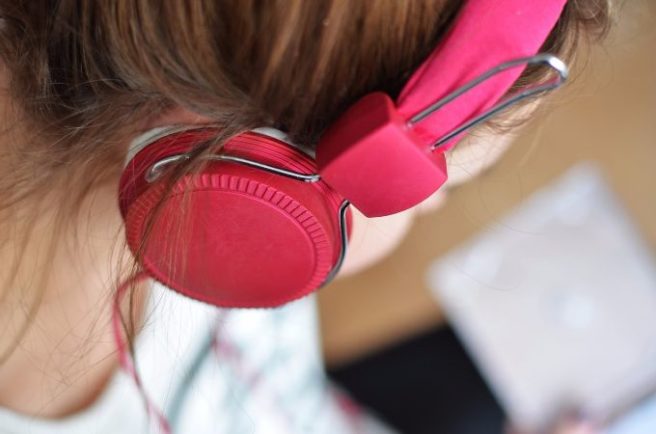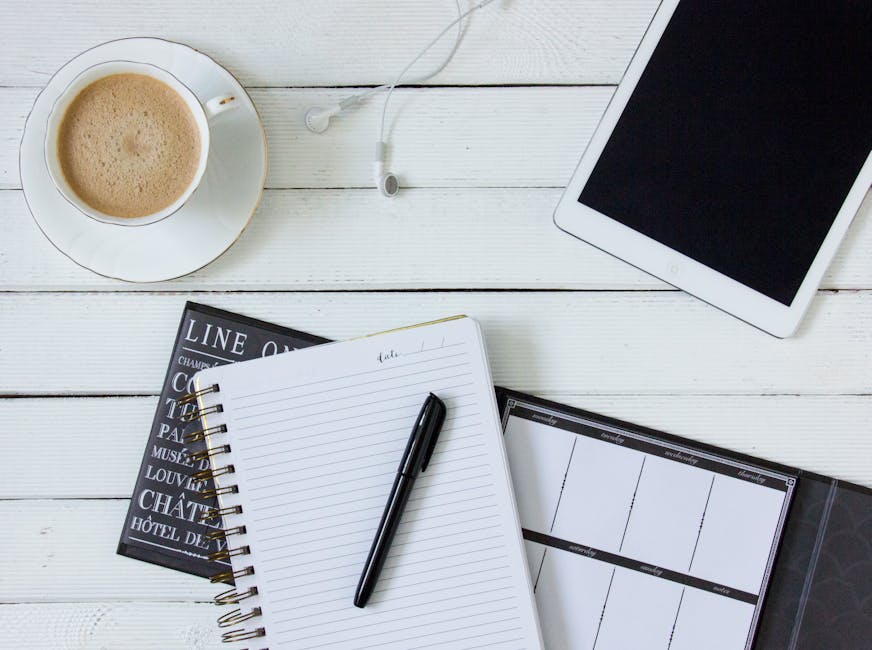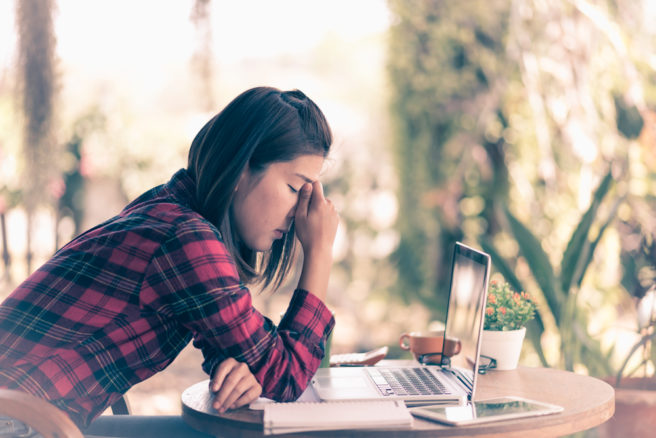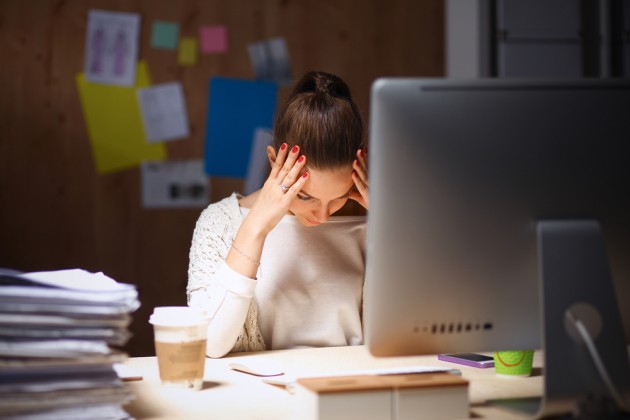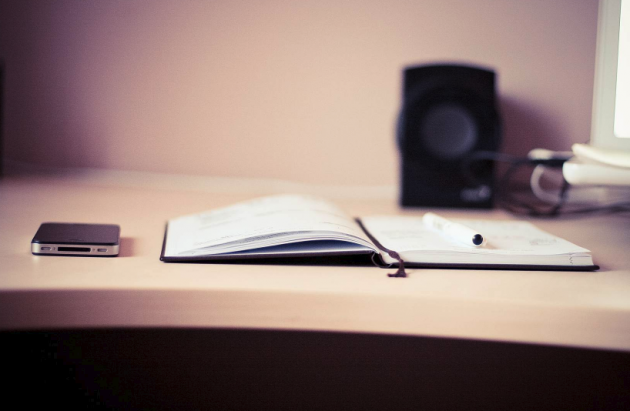
When stress becomes your normal: 6 key signs you need to look out for
You only need to chat to friends and colleagues to realise that a worrying number of people within your social circle are experiencing and exhibiting signs of stress.
But when terms like ‘burned-out’ and ‘time-poor’ are bandied about so often in daily discourse, it’s no surprise that many of us have started to normalise these feelings.
Assuming that physical ailments and emotional anguish are part and parcel of millennial life means that many of us fail to properly identify stress, and subsequently neglect to reach out and seek treatment.
With that in mind, it’s worth considering the signs and symptoms associated with stress in order to properly care for yourself and your wellbeing before it manifests into a bigger issue.
1. Muscle pain
Stress often manifests itself physically, and one of its key targets are body parts like your neck, shoulders and back.
As tension builds and your stress levels increase, your body responds with the tightening of muscles which results in a stiff or aching upper half.
If you have made all the appropriate changes in your workspace, including adjusting the height of your chair and your computer screen and made similar changes in your home, but still frequently feel pain in these areas, it’s worth noting your stress levels and approaching a physician.
When under too much stress, some people get muscle facial pain and headaches. Stress can lead to teeth grinding and you may not even be aware of it. Bruxism (teeth grinding) is a condition in which you grind your teeth unconsciously when you’re awake or while you’re sleeping. If it becomes chronic over time, it’s probably best to see your dentist about a mouth guard for teeth grinding so you can preserve your teeth’s enamel.

2. Irregular heartbeat
We all know that our hearts tend to beat faster when we’re frightened or excited, but how are you meant to justify a rapid heartbeat when you’re merely tending to tasks in the office?
A prolonged period of stress and anxiety can cause your body to produce the ‘stress response’ more regularly, and this response includes irregular heart beats, rhythms, heart flutters or skipped heart beats.
In saying that, as the issue concerns your heart, it’s important to seek to a GP who can rule out more serious conditions.

3. Breathlessness
Most of us have heard of someone suffering an anxiety attack in an episode where they struggled to breath and ‘felt like they were dying’.
As this is an extreme example, many of us tend to dismiss our own experiences where we have struggled to catch our breath or find ourselves breathing shallowly throughout the day.
If you find yourself unable to take a deep breath in the office or can’t catch your breath on a day to day basis, it’s worth approaching your doctor and highlighting the issue.
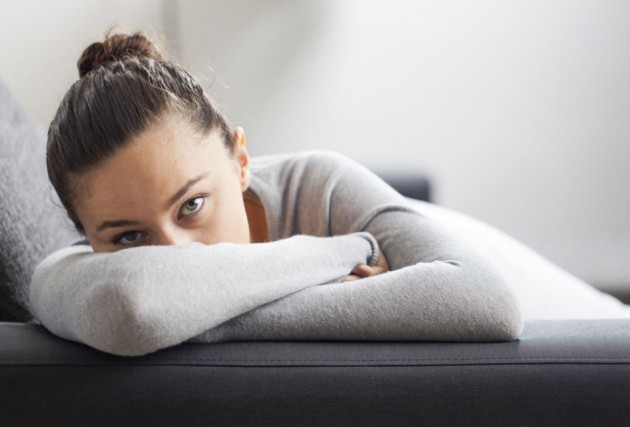
4. Insomnia
The internet is awash with memes which depict our generation’s apparent inability to switch off from social media in order to get a good night’s sleep.
But what if you intend to get some much-need sleep each and every night, but simply can’t fall asleep despite the fact you haven’t laid eyes on a phone or computer screen in hours?
Struggling to sleep despite being tired is a key indicator of stress, and not something you should ignore.
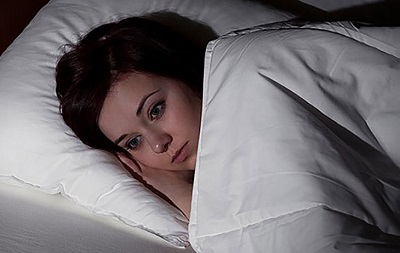
5. Feeling overwhelmed
It’s important to remember that there will be times in everyone’s college life or career path when they feel overwhelmed.
This feeling is often temporary and is a response to a project or increasing workload, but normally dissipates once a target or goal has been met.
It’s important to seek support if you feel overwhelmed on a day-to-day basis and struggle to find pleasure in other aspects of your daily life.

6. A general feeling of unhappiness
Stress is not a condition to be dismissed as it plays an enormous role in a person’s day-to-day life and their ability to find pleasure with family and friends.
It’s totally normal to feel unhappy as a result of circumstances in your life, but when you can’t shake the malcontent despite addressing the percieved issues, it’s important to take note.
And if you struggle regularly with any of the above symptoms, it’s no surprise your prevailing feeling is one of unhappiness.
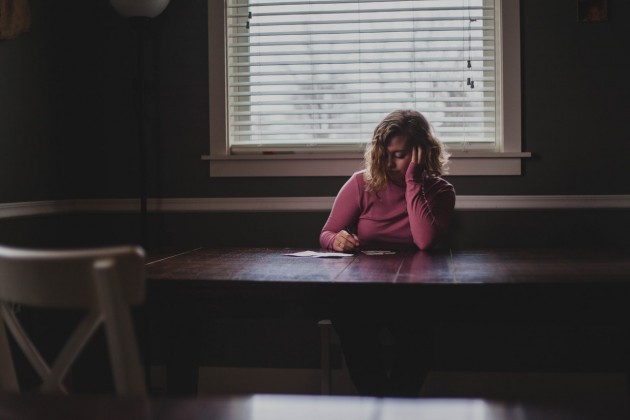
But listen…
The important thing to remember if you know or feel you are suffering from stress is that there are multiple ways to address it.
From taking the time to note when you feel most stressed to identifying the issues which result in the above symptoms, you are earmarking the potential triggers in your life, and can subsequently act on them.
Whether that means approaching your boss with your concerns, speaking to your bank about your financial issues, or communicating your upset to your partner, you are allowing yourself to seek help and guidance.
Approaching a GP or a counsellor with your symptoms is highly recommended, as they can provide you with methods to tackle the stress and advice on how to keep it at bay.
And most importantly…
There is no shame in feeling stressed. Many of us berate ourselves by insisting that one potentially small issue shouldn’t impact so negatively across every aspect of our life, but that’s the insidious nature of stress.
The feelings caused by stress don’t tend to switch off once you leave the office, close your online banking app or part ways with the friend who is causing you upset. You’re not a robot, in other words.
Identifying that you are suffering from it is one of the first steps in treating it.








